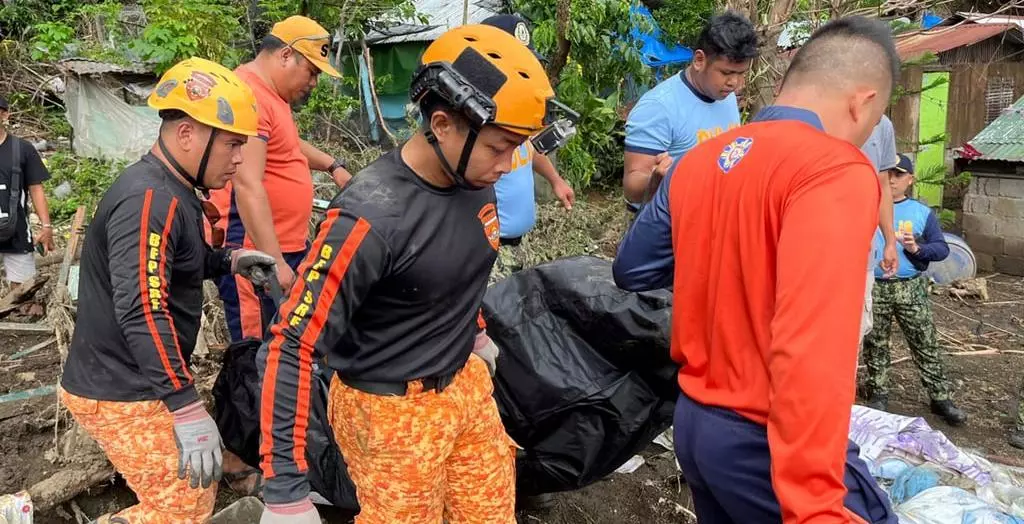
Flooding, landslides in Philippines leave at least 115 dead and missing
text_fieldsPhoto: AP
Over 100 people have been killed and reported missing in the Philippines as a result of Tropical Storm Trami's severe flooding and landslides, and the president stated on Saturday that many places were still isolated and that people needed to be rescued.
Trami, one of the deadliest and most damaging storms to hit the Southeast Asian archipelago this year, blew away from the northwest Philippines on Friday, leaving at least 81 people dead and 34 missing, according to the government's disaster response agency. As news from previously isolated regions came in, the death toll was predicted to increase.
In the lakeside town of Talisay in Batangas province, dozens of police, firefighters, and other emergency officials, supported by three backhoes and sniffer dogs, retrieved one of the two missing villagers on Saturday.
The unusually high amount of rainfall that the storm dumped, including in some areas that received one to two months' worth of rainfall in a single day, overwhelmed flood controls in provinces hit by Trami, according to President Ferdinand Marcos, who visited another severely affected area southeast of Manila on Saturday, Associated Press reported.
"The water was just too much," Marcos told reporters.
"We're not done yet with our rescue work," he said. "Our problem here, there are still many areas that remained flooded and could not be accessed even big trucks.”
Marcos stated that in order to address the extraordinary challenges posed by climate change, his administration would begin work on a significant flood control project.
Nearly half a million of the more than 4.2 million people in the storm's path sought refuge in more than 6,400 emergency shelters spread across multiple provinces, according to the government agency.
Marcos voiced concerns during an emergency Cabinet meeting over government forecasters' claims that the storm, which is the 11th to hit the Philippines this year, may turn around next week when high-pressure winds in the South China Sea push it back.
If the storm did not alter its course, it was expected to lash Vietnam during the weekend. To ensure the safety of millions of people on the major northern island of Luzon, the Philippine government closed its government offices and schools for the third day on Friday.
Thousands of people were left stranded when inter-island ferry services were also cancelled. On Saturday, the weather cleared in most places, making cleanup efforts possible.
The Philippines, an archipelago in Southeast Asia that is situated between the Pacific and South China Seas, is hit by roughly 20 storms and typhoons each year. In 2013, one of the most powerful tropical cyclones ever recorded, Typhoon Haiyan, destroyed entire villages and killed or left over 7,300 people missing.






















